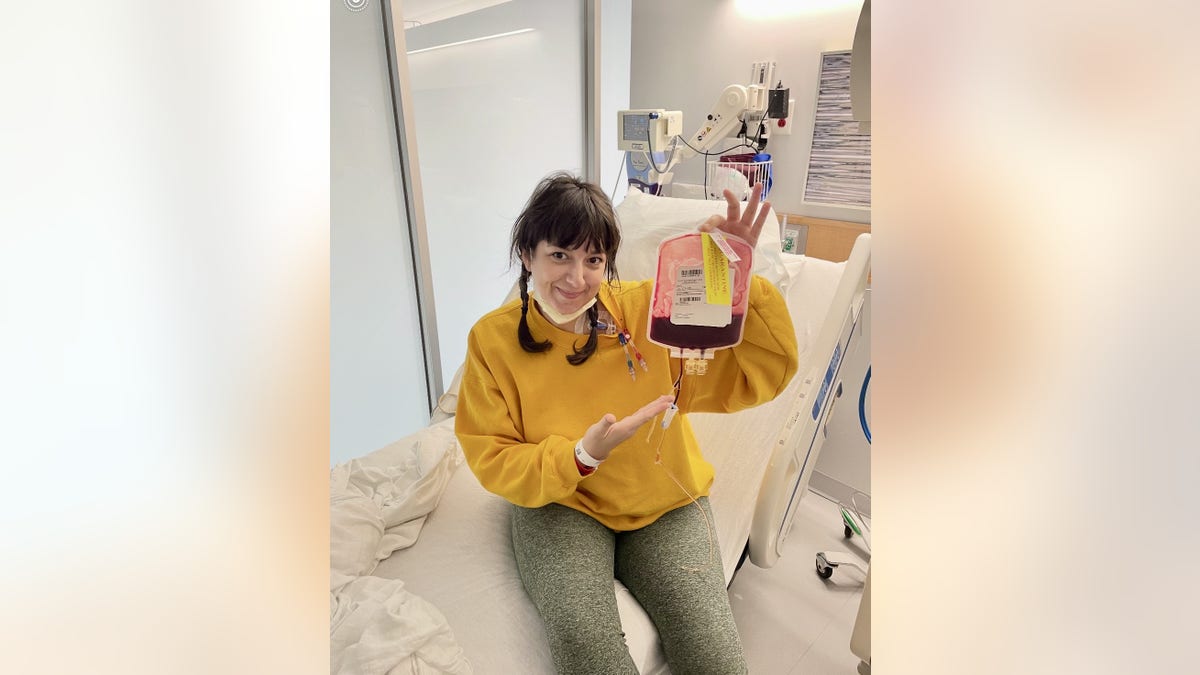Two years ago, Emma Dimery was said that phase 4 colon cancer was incurable. Today, he is healthy and without cancer, and says that a state -of -the -art clinical trial saved his life.
Dimery, who lives in Minnesota, was only 23 years old when he was diagnosed with colon cancer, which has increased abruptly among adolescents and young adults in recent years.
After suffering abdominal pain and having abnormal blood work, Dimerry underwent a colonoscopy, which revealed a “softball size” tumor and another “golf ball size,” he told Fox News Digital.
Alternative cancer treatment could replace chemo and surgery, suggests study
Despite multiple surgeries, chemotherapy, radiation and some combined therapies, Dimery’s treatment resistant cancer spread throughout the body over the years, causing what he described as a “low point”.
Emma Dimery is shown during the first phase of the clinical trial. (Emma Dimery)
“He was basically stepping on water, making immunotherapy every two weeks for probably four years or so,” Fox News Digital told an interview on the camera, and added that he was “out of options.” (See video at the top of the article.)
“He had been waiting for a clinical trial,” Dimery recalled, now 35 years old. “He had exhausted all other levels of treatment and even some standards.”
A shin of hope
When Dimery spoke of a new judgment at the University of Minnesota, he said that “it was not a hard decision.”
“I was on board almost from day one,” he said.
The essay, led by Dr. Emil Lou, tested an experimental genetic therapy that the researcher described as the “next immunotherapy border”.
The woman says the dog detected breast cancer before doctors did: “It is known for all this time”
While most immunotherapy have goals on the outside of the cells, it oriented in the inside of the cells.
“Some of the cell’s goals prevent the immune system from activating cancer,” said Lou, a medical and scientific oncologist who had previously treated Dimery, told Fox News Digital in an interview with the camera. “It’s like a shield that protects the cancer cell from the immune body of the body.”
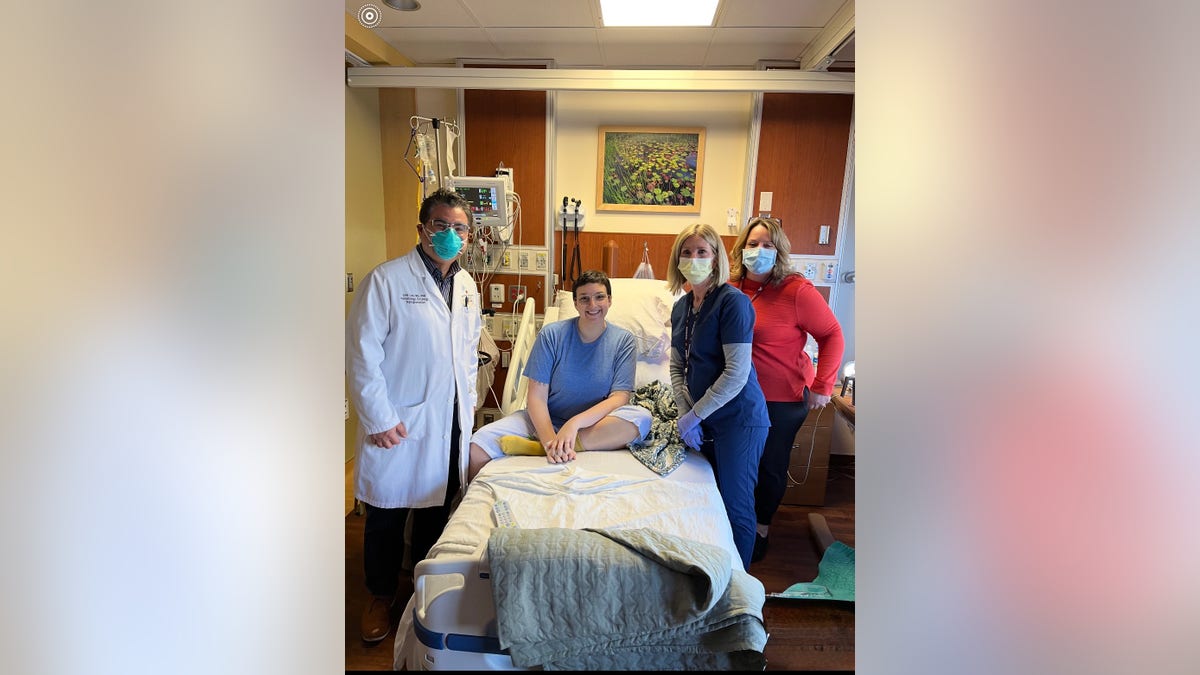
By 2023, Emma Dimery is displayed in the hospital with his care exam during the clinical trial with his care team. (Emma Dimery)
In the essay, the cancer cells of the participants were recovered, then they were modified in a laboratory through the editing technology of genes CRISPR-CAS9, which Lou described as “genetic scissors”. The process programmed the cells to have a more effective antitumor response.
Altered cells were reintroduced to patients’ bodies by infusion.
“They formed the cells to fight my cancer specifically when they were reintroduced to my body,” said Dimery.
“What we saw … was a magnificent and unprecedented level of response.”
It was a long process that was sometimes exhausting, with some difficult side effects.
“You just went through it and try to focus on the good,” Dimery said. “And I had a lot of good around me. I had a really incredible support team.”
A total of 12 patients participated in the study, but Dimerry had much the best results.
“Unprecedented Answer”
The vast majority of advanced colorectal cancers are not considered curable, Lou confirmed to Fox News Digital.
“Chemotherapy or other treatments we have available, while there are several, are palliative, that is, they do not have the ability to induce care in patients with metastatic colorectal cancers,” he said.
“Emma was in this category until she came to our trial.”
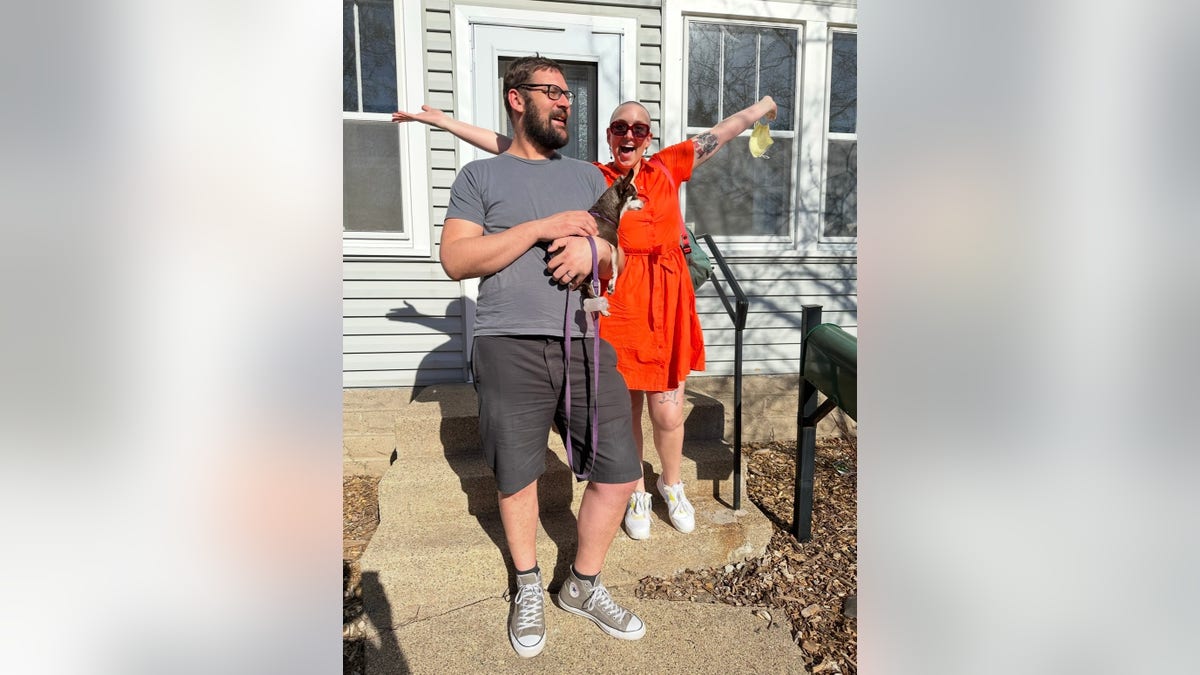
Emma Dimery and her husband Andrew celebrate after buying a house just after being released from the hospital after the trial in 2023. (Emma Dimery)
Lou described Dimery’s response to experimental immunotherapy as “remarkable”. After a single infusion of the designed cells, it was pronounced without cancer, a result that is “almost unheard of” with advanced colorectal cancer.
“We call this on oncology as a” full clinical response “, which you see in 10% or less of all patients,” said Lou. “And it is less than 10% for the colorectal cancers of Stage 4”.
Woman says Chatgpt saved his life helping to detect cancer, which doctors lost
“What we saw in Emma was a magnificent and unprecedented level of response, moving from a metastatic stage for a other way of cancer … where we now see no cancer.”
Two years after the trial, Dimery said he is “very well.”
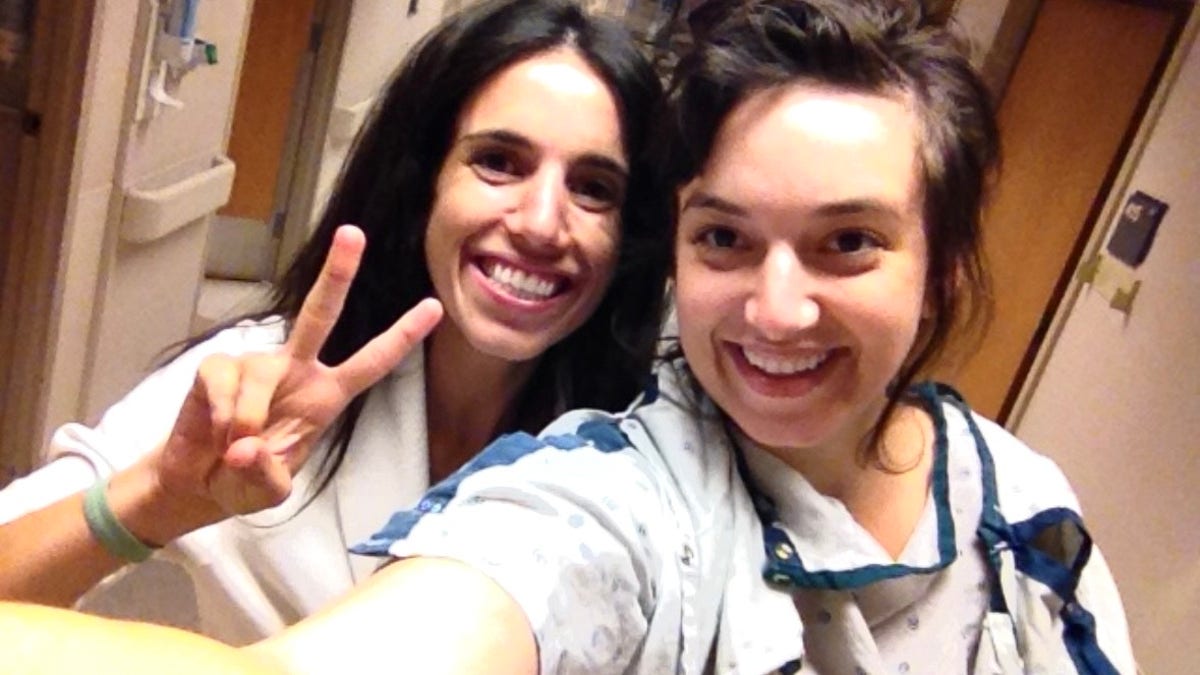
Emma Dimery is shown with her sister, Anne Johnson, during a hospital stay in 2017. (Emma Dimery)
“The judgment worked almost immediately, and since then he had no evidence of illness,” Fox News Digital told Fox.
While hesitates to use “the word C” or “cure”, he said that the judgment has changed the way of thinking of cancer.
Click here to get the Fox News app
“Until now, the best thing I could expect was remission to the point of any evidence of illness … and he had to accept that he could go back up his head at any time, even if they cannot detect it in an exploration,” said Dimery.
“All my scans have just returned better and better.”

“You just had a pass and try to focus on the good,” Dimery said in an interview with the camera with Fox News Digital. “And I had a lot of good around me. I had a really incredible support team.” (Fox News)
Dimery’s story was presented last week at the American Association for Cancer Research (AACR) Annual Meeting in Chicago.
“Emma is exceptional in many ways, but what we have learned from her case, we hope to replicate and decipher how we can achieve it more consistently through the table for more patients like her,” added Lou.
Importance of projection
Studies have shown that by 2023, one in ten colorectal cancer diagnoses was considered in an early place or affected patients under the age of 50.
The American College of Surgeons predicts that the early start cases will be doubled by 2030.

Emma Dimery is shown in 2013, at the age of only 23, after receiving her initial cancer diagnosis. (Emma Dimery)
“Colorectal cancer is still one of the few cancers for which we have validated screening tools,” said Lou.
Blood -based tests, stool -based tests and colonoscopy are included.
In 2018, the American Cancer Society changed its recommendation for colorectal screening of 50 to 45 years. Other medical organizations followed the same in the following years.
“The judgment worked almost immediately, and since then I have not had evidence of illness.”
However, Lou said he is seeing that patients diagnose ahead of 45 years of reference.
“I am seeing something in the last five or six years that I really did not see before my career: teenagers, people of their twenty, 30 and 40 years,” he shared.
“Last week, I saw someone in their early 40’s with widely metastatic colorectal cancer.”
Click here to register -you are in our health newsletter
What is “striking and alarming,” said Lou, is that about half of the colorectal cancer cases are diagnosed in stage 4.
“Many times, they do not even have symptoms or have symptoms interpreted as something else.”
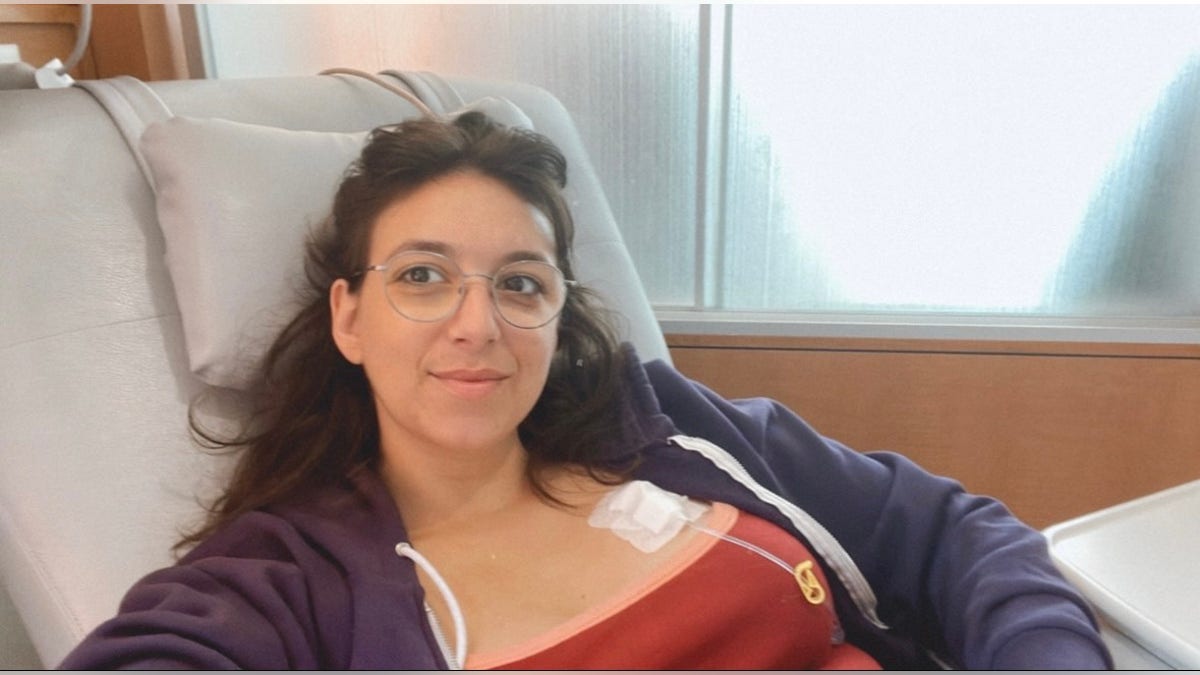
The more people be aware, the better. I think it is really important not to panic, but to keep it informed and connected to the community, “said Emma Dimery, who is shown by 2021 during an immunotherapy treatment. (Emma Dimery)
Dimery said he is animated by early -starting colon cancer that reaches the “avant -garde of public consciousness”.
The more people be aware, the better. I think it is really important not to panic, but to keep it informed and connected to the community. “
For more health items, visit www.foxnews.com/health
He said that genetic tests are also important for evaluating the availability of clinical trials.
“This can tell you a lot about your individual cancer type,” Dimery said. “Luckily for me, I had the appropriate type of cancer for this treatment.”
#Patient #terminal #colon #cancer #saved #innovative #treatment
Image Source : www.foxnews.com
